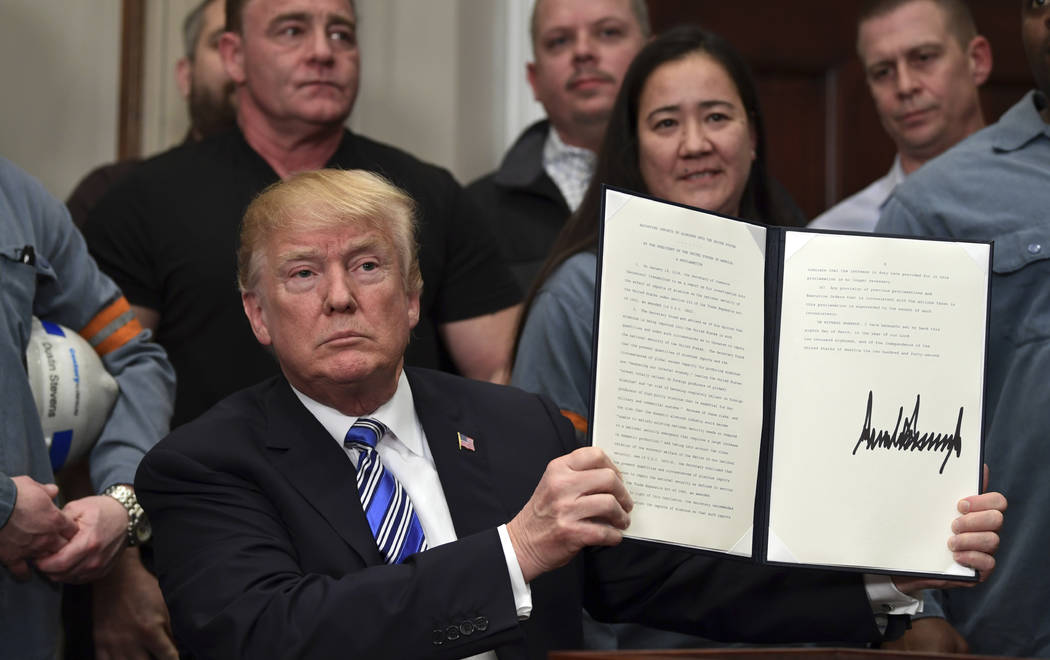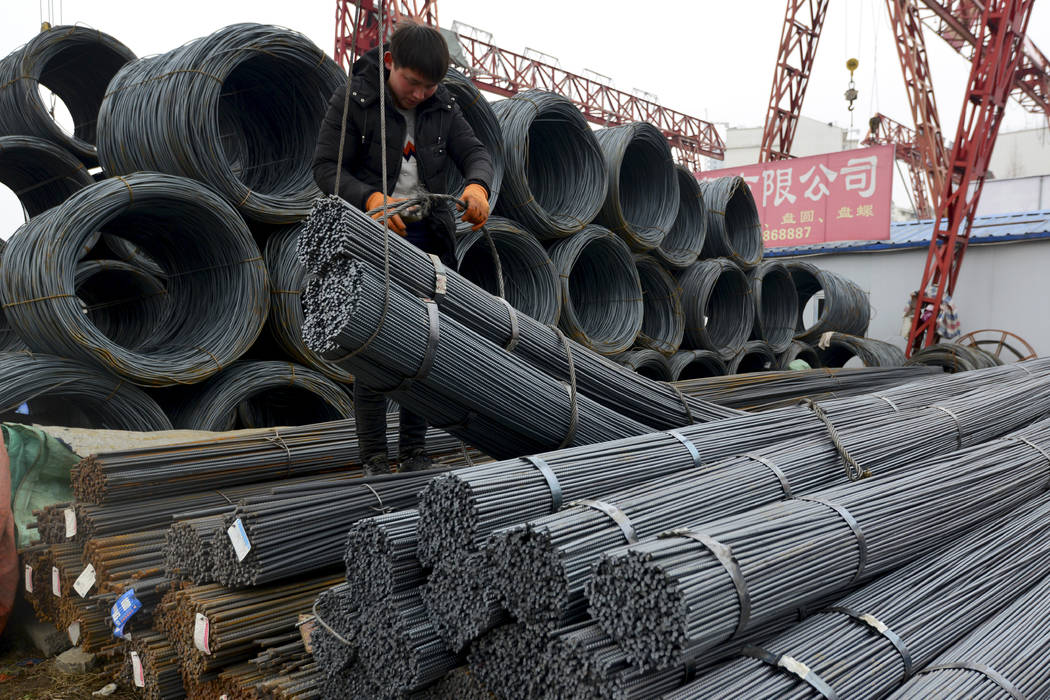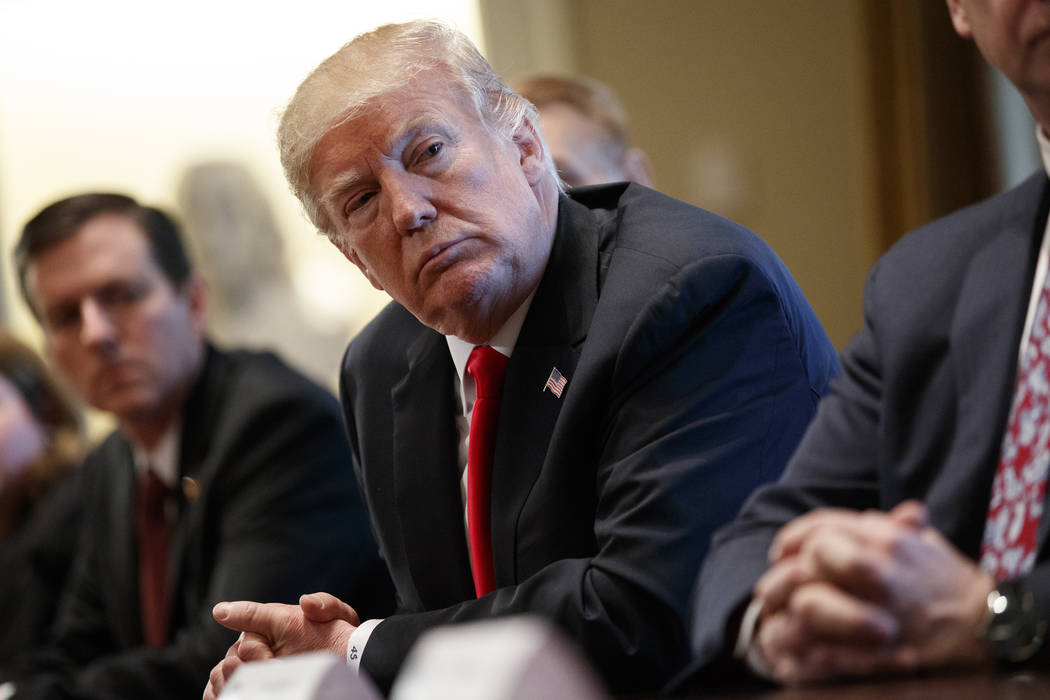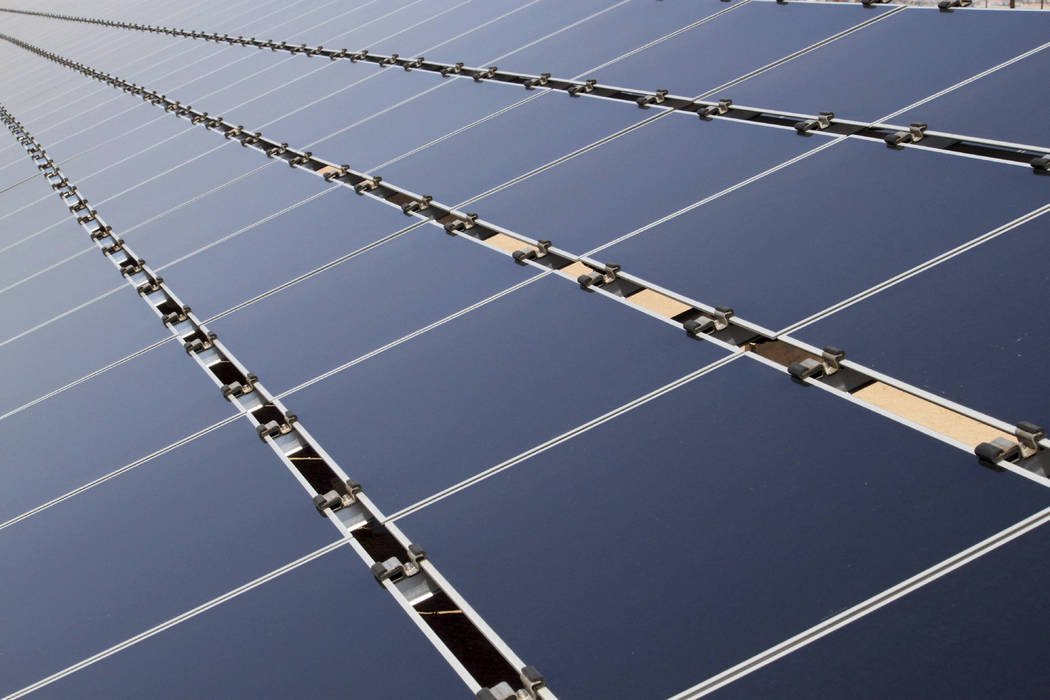Two lessons from Trump’s tariffs








The government shouldn’t pick winners and losers in the economic marketplace. That includes trade policy.
On Thursday, President Donald Trump imposed a 25 percent tariff on steel and a 10 percent tariff on aluminum, while allowing countries to negotiate exclusions. Tariffs are a mistake, and unless limited by the exclusions, they’ll hurt the economy. They do, however, provide two lessons — one for those on the right, and one for those on the left.
For the Trump presidency to be successful, he must enact wise policies. Tariffs are a historical failure. Conservatives rightly mock those who assert that communism’s problems stem from the fact that it’s never been correctly implemented over the past 100 years. But tariffs, which characterize an economic policy known as mercantilism, have a 300-year record of failure. Tariffs seek to fix something that sounds ominous — a trade deficit — but really isn’t that bad.
Think about the trade deficit you have with Walmart. Most people have spent thousands of dollars there and never sold Walmart a single thing. You have a huge trade deficit with Walmart. So what? You’re better off for shopping there. You could reduce your “trade deficit” with Walmart by shopping at a more expensive store, but you’d be hurting only yourself. This is why tariffs make the average consumer poorer.
Without widespread exclusions, Trump’s tariffs will raise the price of everything from soup cans to cars. Republicans argue that tax cuts are popular because people like to keep more of their own money. That’s true, but it also means it’s going to be unpopular when tariffs raise the cost of consumer goods.
The concern about China artificially lowering the cost of its steel to undermine the profitability of American steel companies is especially overblown. If China wants to take money from its own citizens to reduce the cost of U.S. buildings and roads, why should we object? Nations used to take money from other countries only after defeating them militarily. Chinese officials now willingly enrich the United States. Instead of fighting them, Trump should send a thank-you note.
If you support Trump, the worst thing you can do is blindly defend his every action. Economic realities don’t change based on which party implements a policy. Tariffs are economically destructive and, if fully implemented, they will hurt Trump’s popularity.
That’s the takeaway for Republicans. Here’s what Democrats should learn.
Steel tariffs are attractive on the surface because the benefits are very visible. Stocks of steel firms shot up after Trump’s announcement. On Wednesday, U.S. Steel said it would reopen a plant that employs 500 people. That’s a real benefit.
Liberals are right to point out that isn’t the whole story. Trade Partnership estimated the tariffs would create 33,464 jobs but cost 179,334 jobs. That’s a net loss of 145,870 jobs.
The left is correct that this makes tariffs foolish. It’s the same logic, however, used to justify a host of liberal policies, including solar-energy mandates, prevailing wage laws and minimum wage hikes.
Nevadans for a Clean Energy Future wants to mandate that 50 percent of Nevada’s energy comes from solar by 2030. Rep. Dina Titus has said she supports the initiative, because it will “create clean-energy jobs.”
A solar mandate produces new solar jobs just like a steel tariff produces new steel jobs. Those jobs are easy to see. But the people who lose their jobs or never get one in the first place thanks to such policies are spread throughout the economy. Past efforts to mandate more solar energy have led to higher power prices, which reduce overall employment. Combined, those “unseen” job losses far surpass the gains for the favored industry.
This is why government shouldn’t pick winners and losers. Government mandates — for steel or solar — won’t produce overall economic growth. That’s a lesson worth learning no matter who is in power or which industry will benefit.
Victor Joecks’ column appears in the Opinion section each Sunday, Wednesday and Friday. Listen to him discuss his columns each Monday at 9 a.m. with Kevin Wall on 790 Talk Now. Contact him at vjoecks@reviewjournal.com or 702-383-4698. Follow @victorjoecks on Twitter.













